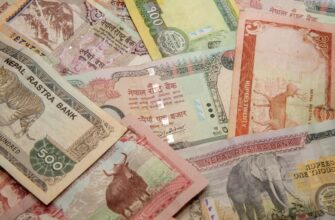Is airdrop income taxable in Thailand 2025? This question is critical for individuals and businesses involved in cryptocurrency-related activities. Thailand has implemented strict regulations on cryptocurrency transactions, including airdrops, which are often considered a form of income. Understanding the tax implications of airdrops in Thailand is essential for compliance and avoiding legal issues. This article explores the tax status of airdrop income in Thailand for 2025, key factors affecting taxability, and reporting requirements.
### Understanding Airdrop Income
Airdrop income refers to the distribution of cryptocurrency tokens or coins to individuals or businesses as part of a promotional campaign. These distributions are often used to increase the adoption of a new project or token. While airdrops are frequently associated with cryptocurrency, they can also involve other digital assets. In Thailand, the tax treatment of airdrops depends on whether the distribution is considered income, a gift, or a form of investment.
### Taxability of Airdrop Income in Thailand 2025
As of 2025, Thailand has classified cryptocurrency transactions, including airdrops, under its existing tax framework. The Thai Revenue Department (TRD) has issued guidelines that treat cryptocurrency as a virtual asset, subject to capital gains tax when sold or traded. However, the tax treatment of airdrops specifically depends on the nature of the distribution. Here are key factors to consider:
1. **Type of Airdrop**: If the airdrop is a reward for participation in a project, it may be considered a form of income. If it is a promotional gesture, it could be classified as a gift or non-taxable.
2. **Value of the Airdrop**: The taxability of airdrop income is often determined by the market value of the cryptocurrency at the time of distribution. If the airdrop is valued at a significant amount, it may be subject to income tax.
3. **Intent of the Distributor**: If the airdrop is intended to generate revenue for the project, it may be taxed as income. If it is a promotional gesture, it may not be taxed.
### Key Factors Affecting Taxability
Several factors influence whether airdrop income is taxable in Thailand:
– **Nature of the Airdrop**: Airdrops that are part of a reward system for users may be taxed as income. Airdrops that are promotional or non-revenue-generating may not be taxed.
– **Market Value**: The taxability of airdrop income is often based on the market value of the cryptocurrency at the time of distribution. If the airdrop is valued at a high amount, it may be subject to income tax.
– **Legal Status of the Project**: If the airdrop is part of a project that is not regulated or is considered a scam, it may be classified as a non-taxable gift.
### Reporting Requirements for Airdrop Income
In Thailand, individuals and businesses must report cryptocurrency transactions, including airdrops, to the Thai Revenue Department. Key reporting requirements include:
– **Record-Keeping**: Maintain records of all airdrop distributions, including the date, value, and recipient.
– **Tax Filing**: Report airdrop income as part of your annual tax return if it is classified as income.
– **Compliance with Regulations**: Ensure that airdrop activities comply with Thailand’s cryptocurrency regulations, including anti-money laundering (AML) and know-your-customer (KYC) requirements.
### Frequently Asked Questions (FAQ)
**Q: Is airdrop income taxable in Thailand 2025?**
A: Yes, airdrop income is generally taxable in Thailand if it is considered income. The Thai Revenue Department treats cryptocurrency as a virtual asset, and airdrops that generate revenue may be subject to income tax.
**Q: What are the tax implications for airdrops in Thailand?**
A: Airdrops that are part of a reward system or promotional campaign may be taxed as income. However, airdrops that are non-revenue-generating or considered gifts may not be taxed. The taxability depends on the value and intent of the distribution.
**Q: Are there any exemptions for airdrop income in Thailand?**
A: There are no specific exemptions for airdrop income in Thailand. However, airdrops that are classified as gifts or non-revenue-generating may not be subject to income tax.
**Q: How is airdrop income reported in Thailand?**
A: Airdrop income must be reported as part of your annual tax return if it is classified as income. You must provide details such as the date, value, and recipient of the airdrop distribution.
**Q: What are the consequences of not reporting airdrop income in Thailand?**
A: Failure to report airdrop income in Thailand may result in penalties, including fines and legal action. The Thai Revenue Department has increased its focus on cryptocurrency transactions, and non-compliance can lead to significant financial and legal consequences.
### Conclusion
Airdrop income in Thailand 2025 is subject to taxation, depending on the nature, value, and intent of the distribution. Individuals and businesses must understand the tax implications of airdrops and ensure compliance with Thailand’s cryptocurrency regulations. By maintaining proper records and reporting airdrop income accurately, you can avoid legal issues and ensure compliance with the Thai Revenue Department’s requirements. Stay informed about the latest developments in Thailand’s cryptocurrency tax laws to navigate the regulatory landscape effectively.








